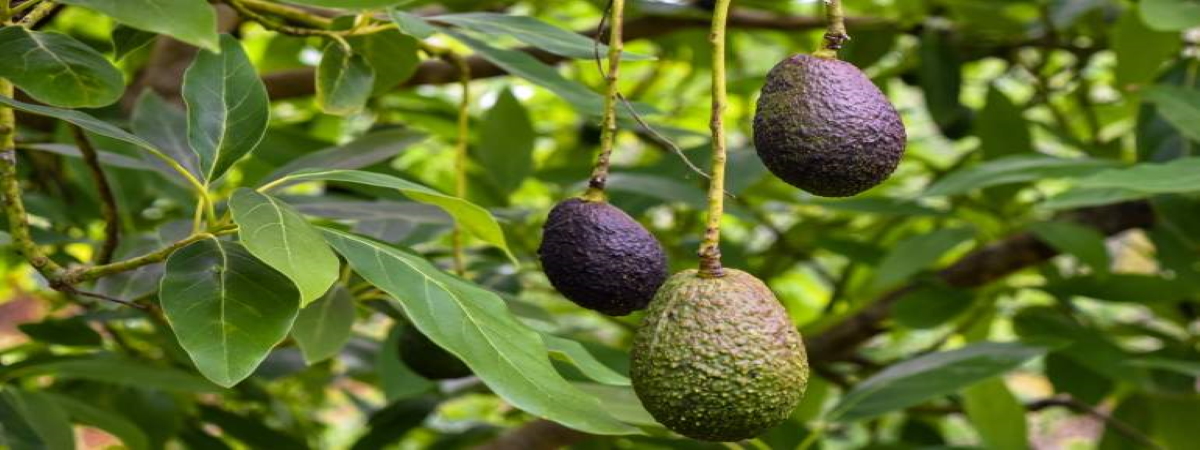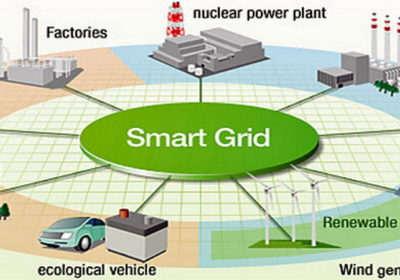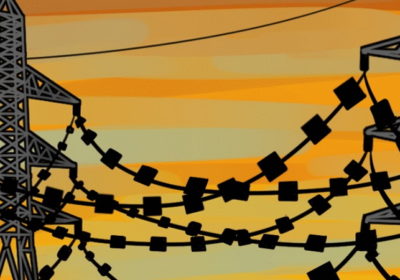
In times of economic uncertainty, there is no political leader who does not wish to have a goose that lays golden eggs and generates resources at the same pace as the economic system urgently needs them. The trillions of euros and dollars put in place in recent weeks to counteract the negative impact of covid-19, or rather, the shutdown of the economy due to the global pandemic, testify that the goose that lays the golden eggs in the form of the Fed’s or any other central bank’s banknote printing machine is not enough to keep markets and businesses afloat, due to the intricate financial system that governs our society and, above all, the human panic, notably of large investors, to lose their fortunes and possessions, desperately moving from one “safe haven security” to another that which they have invested, without finding respite to be able to leave them still and stable until all this chaos passes.
Cryptocurrencies have not been the financial refuge that their proponents promised or wanted to make them look like. The bitcoin does not end up rising as much as its investors expected it to do at the moment and the bull market has it complicated to see this cryptocurrency in the stratospheric numbers in which it came to be in 2019. Not even its most direct competitors, such as Ether, goes above $150 and follows a rise-fall correlation linked to the instability of the crypto market just like bitcoin.
Gold remains stable, in mid-April it was trading at 1740 US an ounce, so at least there its investors are holding on, as the old economic guard still believes in the shiny standard of this metal as a safeguard for the money, virtual on the other hand, that they have invested in it, but few other values are having the resistance that the food market has, oddly enough.
In search of green gold
No one has looked at indexes, or at least, no one seems to have noticed, that the avocado is the green gold of this century that at the beginning of July 2019 had increased 130% in price compared to the previous year. Millions of kilos are produced annually worldwide, although a large part of the production that is consumed comes from Mexico and two or three countries such as Chile and Peru that follow behind. So much so that there is almost more money invested in mafias to protect and do business with avocado plantations than there was at the beginning of the drug trafficking market in that same country. It is curious that many cartels are diversifying their business and are seeing how this small fruit, very varied in nutrients, is becoming the best investment of the moment. We will see if it continues like this.
So much is the buying and selling of avocados holding up, that there have been attempts to correlate the rise and fall of bitcoin with the rise and fall of the price of bitcoin. Different analysts of the cryptocurrency, desperate for not understanding the anachronistic rises and inexplicable falls of the price, the high volatility of the same and the variations from one hour to another of several percentage points, have come to make correlation graphs of the BTC with almost everything, and one of them, with the avocado, which seemed to be the closest to it. Curious relationship and, certainly, something to think about.
But no, we do not believe that, in this case, the correlation of the price of this fruit is what is influencing the price of cryptocurrencies and we are in this article talking about the fruit, although it hypothetically impacts all these other areas. The question is, why is the avocado now one of the most traded stocks in the market and why is it going so unnoticed by everyone?
A stealth creation of a future monopoly
Basically because the big avocado companies want it, and the big food companies are hiding it. An enormous concentration of small producers in cooperatives is taking place, nothing new or strange, but at an unusual rate. In less than 2 years, from several hundred thousand small producers with a few hectares each, producing mainly a fruit destined for local and national consumption, we are moving to only a few hundred and soon to only a few tens, with a maximum of three or four multinational companies like Calavo Growers or West Park Avocado buying all the production and taking control of the almost total market of this fruit.
So what is it about the avocado that makes it so valuable, why this interest, and what value can it have beyond its nutritional value and in the food market? The secret lies in the fact that avocado skin can be a substitute for some of the elements currently used to create biofuel, i.e. gasoline from organic waste. With sugar cane, cereals and beets (sugar beet) and other materials used until now in constant decline, due to the ecological impact that their planting has had in countries like Brazil, Indonesia, and other nations where large tracts of jungle have been cut down to plant cane to serve as raw material for biodiesel and derived fuels, it is being discovered that from the sugar cane, the avocado skin can be used to create biofuels, it is being discovered that from avocado peel we can extract an oily compound with similar characteristics that, if necessary, can be refined to replace the current ones in the lucrative biofuels market.
With oil in decline, alternatives are being sought
This is becoming increasingly attractive, especially now that oil is suffering a huge crisis and OPEC members plus Russia and the United States are struggling to keep barrel prices above a minimum to ensure the stability of their national budgets, which in some cases are heavily dependent on crude oil. In Saudi Arabia alone, they need a price per barrel of around $85USD for that balanced budget to be realized, and countries like Nigeria cannot survive at all if the price of the oil they export remains at current levels of $30 for much longer.
So those companies that have realized that the biofuels market will sooner or later become lucrative when the consumer stops using petroleum-based fuels, are moving towards the search for the next raw material that will replace sugar cane and other current raw materials, and that product, who would have thought it, is the tasty little avocado.
Whether its price will go up or down a lot now will depend on how the world emerges strengthened or weakened from this situation of economic crisis that the covid-19 pandemic is generating. It is therefore too early to predict whether we are going to see a product that will withstand the onslaught of the markets and the panic of investors by really staying in the shadows and off the radar, except, of course, for the most knowledgeable and those analysts who specialize in this product. But they are few in number, and therefore there is still not much scrutiny, nor has the world taken special notice of the fact that the companies that buy and sell avocados are the ones that are rising the most in their share price and the ones that are best withstanding the slumps that are occurring due to the current economic problems.
Preparing the ground for the right time
How can avocados be marketed if there is still no market for this type of biofuel? It is not a question of putting a new type of fuel on sale now and making it available to the consumer at this time, but of setting up the system of exploitation of the product that will facilitate it in the future and consolidate its commercialization and production in only a few hands, those of the most important companies in the sector, and perhaps other secondary ones such as Mission Produce or the McDaniel Fruit Company that will be the ones that are stealthily looking for a way to buy or coordinate and put under their control the whole process of production, collection, transport and worldwide distribution of the green gold, as it is called.
When the business monopoly is formed, and the production and supply chains are secured, and no other company can enter because there will be no independent producers or producing areas of the planet that have not been bought or are managed by this mini business conglomerate, it is possible that the existence of this new biofuel creation system will be announced to the world and it will begin to reach all gas stations little by little, as the new engines of all vehicles are made compatible with it. While the world is moving towards a transport model based mainly on electric vehicles, the lack of charging points and the limited capacity of batteries still make it unfeasible to replace gasoline cars 100% quickly and efficiently with electric cars, which means that there is a market potential in a transition fuel that these companies have discovered and are going to try to take advantage of.
A process a couple of years away
How and when will we see this transition and the implementation of this type of biofuel? In two years, we believe, according to our analysis at IDHUS, because of the speed with which contracts for the purchase and sale of avocado farms and production are being signed and the control of the main companies over small producers around the world is gradually closing, mainly in Latin America, but also in places such as Indonesia, another producer of the fruit. Producing biofuel from avocado will not be difficult because the same process that is now used to distill it from the sugar cane plant and other raw materials has to be simulated and repeated, and once it is seen that the result, as preliminary tests have shown, is sufficiently satisfactory, it could begin to be distributed first to small areas and cities through a network of exclusive gas stations and then be extended to the rest of the country, presumably starting in the United States, and, little by little, extending it to the rest of the countries of the world.
Shall we get on board the green gold rush?
It seems a good time to invest in this type of company, if the analyses of those who may have an interest in it show that it is a reliable and valuable target in the medium and long term, since it is not our intention to give advice on where to buy or sell shares, but to note that an interesting market monopolized by these three companies is being created, which in the future will have a wide impact on the hydrocarbon sector.
So will avocados be a safe haven in times of crisis?
We believe so, at least the economic team of this institute in its simulations and predictions according to the current dynamics believes that it is one of the products that will better withstand the financial ups and downs that currently occur and will occur in the world economy, until we get out of this crisis created by the economic standstill caused by the pandemic.
How far will the business sector go to take control of all avocado production?
While they do it quietly and without arousing too much talk in the offices of Wall Street, global investors and competing companies in other sectors of food or transportation, they can really get to take over 100% of that production leaving micro producers who may refuse to cooperate or sign contracts with them to sell the kilos they get to produce to the local market, but little more. It has always been known that the ambition of large multinational companies, generally speaking, is to control everything they can, from origin to consumer, the product they sell, and therefore, the greater the control of the entire chain, the greater the profits, the lower the risks, and if you do it quietly, the less legislation against you, the fewer eyes watching you or the less chance of others getting ahead of you.
How did these properties come to be discovered in avocados?
A study by the University of Exeter in Cornwall, England, in 1980, found that avocado peel, crushed and mixed with other ingredients, and converted into bioethanol-style fuel, produced the same power and combustion capacity as fuels based on natural materials existing at the time. Little has been studied afterwards on these properties, but some companies and universities, mainly Mexican, started in the late 80’s and early 90’s to look for alternatives to sugar cane, some cereals, sugar beet, etc., as raw material, due to the negative publicity that had, and still has, the destruction of forests, jungles and forest areas to plant sugar cane that could be used for fuels and not as food. In the last decade, some companies that have continued experimenting with other raw materials to obtain better biofuels were the food companies that market avocados, and those that saw the opportunity to enter the energy sector by producing fuel from the skin of the avocados they brought to market.
This obviously poses a problem. For the end consumer to be able to eat the avocado at home, it has to come with the skin on. Not everyone buys ready-made guacamole, or not everyone wants guacamole, which would be the most famous derivative of the avocado and where you can buy it ready-made, and the factory can keep the peel and use it for biofuel. So there is no choice but to produce avocados but not to take them to the market as fruit for consumption, but to take them directly to the processes of extraction of the skin and then see what is done with the fruit itself that cannot be used for anything other than to serve it or sell it as part of prepared dishes or, as we say, as guacamole already packaged.
So the price of the fruit as such will tend to increase, if this forecast becomes a reality, as there will be far fewer units available for greengrocers and supermarkets and millions of them will end up directly in the warehouse of our vehicles, once they have been refined and passed through the necessary process.
A restricted but lucrative market
We are also aware that the market for vehicles running on biofuels is not a global market, nor an extremely large one, yet. Most cars now still use diesel or gasoline, there are starting to be hybrid cars with electric motors or cars that run on liquefied gas, LPG, also derived from oil, but when the latter is either disappearing, or it is not feasible to produce it at the price at which it is now, or it is so expensive because its cost has been artificially inflated, it is not yet possible to produce it at the price at which it is now, or it is so expensive because its cost has been artificially inflated, that vehicles that can run on today’s bioethanol will be able to run on avocado fuel and, with part of the population becoming increasingly aware of climate change and ecological sustainability issues, we will see at least one to five percent of the total market shift to the use of this biofuel within a 10-year timeframe at the most.
It’s not negative, some would say. Perhaps it is not, we agree that if it is more sustainable to plant and market avocados than sugar cane, if that manages to avoid further deforestation of our jungles and forests, and if we also manage to move part of the population towards somewhat less polluting fuels as a preliminary step towards the use of electric vehicles, then it seems that this transition can be positive in the medium and long term.
The question is, what will happen to the avocado as an eating fruit? I mean, for the transport sector it will be, or can be, a good initiative. But what about for families, the agriculture and food sector?
A new source of income and a change in the products to be grown
How many families, farms, small growers and farmers, when they see the economic vein that the cultivation and production of this fruit represents, will leave everything aside, uproot the rest of the crops on their land and start planting avocado trees non-stop?
It has happened before and it will happen again. Burdened by the weight of an increasingly competitive economy, falling prices and pressure from large multinationals, many small local producers rarely cover costs to keep their business running and move forward. It is true that there are aids from governments such as those of the EU and the United States that regulate prices and try to keep the agriculture sector protected to some extent, but it is also true that, even so, farmers and small farms do not always manage to get by with the current products and plantations, as the market is already very saturated with all this and they are products that are available in almost any other part of the world at even lower prices.
So, at the moment there is the possibility of moving to a “new” crop, in quotation marks, because it has existed for thousands of years when the Aztecs already used it for their traditional foods (its name “ahuacalt”, means “testicle”), it is not a fruit that has had a growth and expansion as big as the potato, tomato or other fruits much more expanded internationally. Therefore, there is room for growth in the avocado and that is why it has earned the nickname of “green gold”, since huge profits are currently being made by selling it as what it is, a fruit and a food, so when it starts to be used for what it is intended to be used for, a new fuel for vehicles, things could skyrocket.
It will be a matter of continuing to watch and monitor the market in this regard, and see how the acquisition and construction of the monopoly that these companies are stealthily creating progresses, and then see if the development of avocado biofuel is successful. Perhaps when we go to the gas station to put it in our car, its reminiscence of guacamole will whet our appetite, and from there we will go directly to the restaurant, if not to the fruit store, to buy a couple of kilos, to see that, unfortunately, the avocado has cost us ten times more in fruit, than the liquid version that now moves the car with which we travel.



